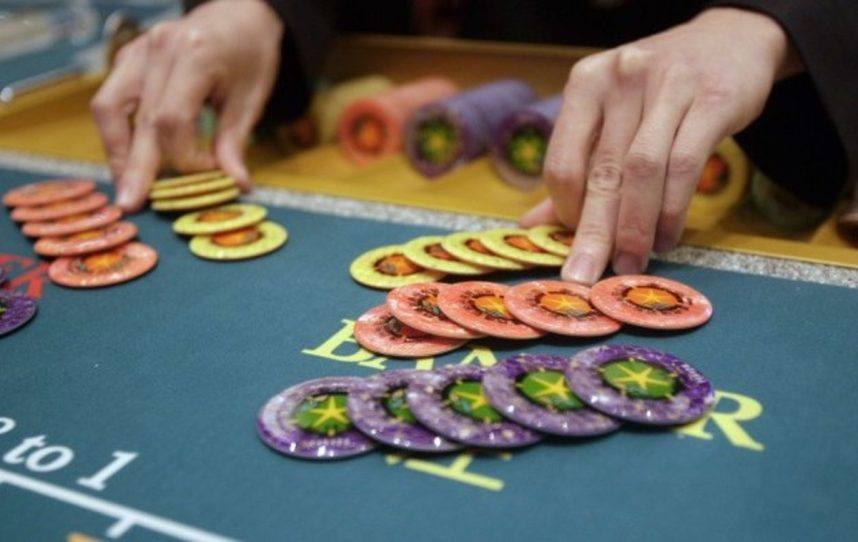Fake Macau Casino Chips Lead to Arrests, Handful of Criminals Admit Guilt
Posted on: May 2, 2024, 10:01h.
Last updated on: May 2, 2024, 10:09h.
Fake casino chips detected in a Macau casino led to local law enforcement arresting five individuals thought to be involved in the crime.

Macau’s Judiciary Police announced Thursday that five Chinese men were accused of trying to defraud a casino by using counterfeit gaming chips. Police said approximately HK$5.85 million (US$740K) worth of fraudulent chips were seized.
Law enforcement detailed that each chip was labeled with a denomination of HK$10,000 (US$1,280). The officers found 585 counterfeit tokens.
Judiciary officials didn’t specify at which casino the crime occurred, but did say it was a property on the Cotai Strip. The handful of individuals arrested admitted their guilt, a police statement read.
Investigators believe the criminals were acting on behalf of a mainland criminal organization. Police said the chips were highly sophisticated and were “difficult to differentiate” from a legitimate chip with the naked eye.
Common Crime
Unlike most preeminent casinos on the Las Vegas Strip, which use gaming chips equipped with RFID (radio frequency identification) technology that allows for the easy detection of counterfeit tokens, most Macau casinos don’t utilize such sophisticated chips.
High incidences of crimes involving fraudulent gaming chips have led to Macau casinos slowly integrating RFID technology into their operations. RFID tags on gaming chips allow security, cashier workers, and table game dealers to quickly authenticate chips.
RFID-embedded tags also allow casinos to track the gaming chips in real-time. RFID readers scan chips at table games and cashier booths to validate authentic tokens and detect fraudulent ones.
Macau’s counterfeit gaming chip problem is so common that fraudulent chips are widely sold on the internet in Asia. The fake chips are branded with casino names and logos, and appear nearly identical to legitimate tokens.
Sometimes, unknowing gamblers find themselves in possession of fraudulent chips. A common ploy used by criminals is asking fellow gamblers to make chip exchanges or peer-to-peer side bets.
Major Penalties
The bad actors who knowingly use counterfeit chips inside Macau casinos do so in the face of an incredible amount of risk, as Macau’s criminal code follows much of China’s and comes with steep penalties for crimes of forgery and counterfeiting.
A person who circulates a counterfeit or altered coin, paper currency, or banknote or who collects it from or delivers it to another with the intention to circulate shall be sentenced to imprisonment for not less than three years but not more than ten years,” the enclave’s criminal code reads.
A person found guilty of such an offense is also subjected to a fine of CN¥150,000 (US$20,700).
Prisons in China are considered to be among the most ruthless environments in the world among developed countries. China has also been accused of using prisoners for forced labor, allegations that the People’s Republic has continually denied, but seems to confirm in its own publicly made policy.
China’s detention law states that imprisonment should “combine punishment and reform” for criminals “with the principle of combining education and labor to change criminals into law-abiding citizens.”
As of 2018, China had about 1.7 million people residing in 680 prisons.
Related News Articles
Macau Casinos Drop Lawsuit Against Alvin Chau, Suncity Junket Group
Macau Lawmakers Propose Bill to Better Combat Gambling Crimes
Chinese Police Arrest More Than 90 in Gambling Gang Raid
Most Popular
LOST VEGAS: The Foster Brooks Robot at MGM Grand
Bally’s Sets Date for Tropicana Las Vegas Implosion & Party
Most Commented
-
VEGAS MYTHS RE-BUSTED: You Don’t Have to Pay Resort Fees
— August 2, 2024 — 16 Comments -
VEGAS MYTHS RE-BUSTED: Elvis Was a Straight-Up Racist
— August 9, 2024 — 11 Comments -
ANTI-SOCIAL BEHAVIOR: Vegas Casino Buffet Stunt in Poor Taste Goes Viral
— August 16, 2024 — 7 Comments -
VEGAS MYTHS RE-BUSTED: The Strip Tried Appealing to Families and Failed
— August 23, 2024 — 7 Comments
















No comments yet